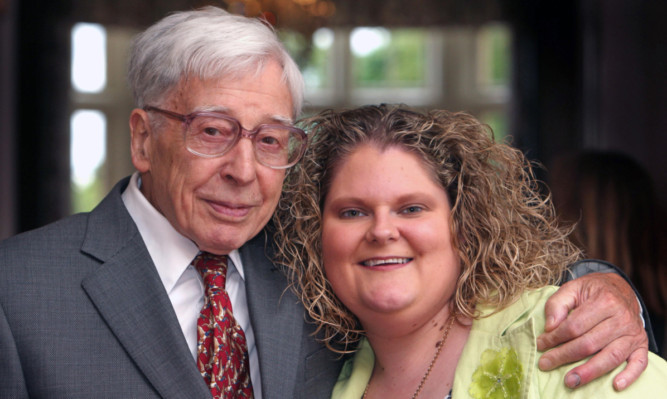Nobel prize-winning IVF pioneer Professor Sir Robert Edwards has died, aged 87.
Sir Robert was one of two fertility experts whose work led to the birth of the world’s first “test tube baby”, Louise Brown, on July 25 1978.
His colleague Patrick Steptoe, a gynaecologist, died in 1988.
News of Sir Robert’s death was announced on behalf of his family by Cambridge University where he worked for many years in the department of physiology.
Sir Robert was knighted in 2011, a year after receiving the Nobel prize for physiology or medicine in recognition of his achievements in the development of in-vitro fertilisation.
Professor Martin Johnson, one of Sir Robert’s first graduate students at Cambridge between 1966 and 1969, said: “Bob Edwards was a remarkable man who changed the lives of so many people. He was not only a visionary in his science but also in his communication to the wider public about matters scientific, in which he was a great pioneer.
“He will be greatly missed by his colleagues, students, his family and all the many people he has helped to have children.”
Mike Macnamee, chief executive of the Bourn Hall, the IVF clinic Steptoe and Edwards co-founded, said: “Bob Edwards is one of our greatest scientists. His inspirational work in the early 60s led to a breakthrough that has enhanced the lives of millions of people worldwide. He is held in great affection by everyone who has worked with him and was treated by him.
“For me personally, Bob was a great mentor, colleague and friend. It was a privilege to work with him, and his passing is a great loss to us all.”
Sir Robert was born in September 1925 and died after a long illness, a statement from his family said.
Paying tribute to Sir Robert, leading IVF expert Professor Peter Braude, from King’s College London, said: “Few biologists have so positively and practically impacted on humankind.
“Bob’s boundless energy, his innovative ideas and his resilience, despite the relentless criticism by naysayers, changed the lives of millions of ordinary people who now rejoice in the gift of their own child. He leaves the world a much better place.”
